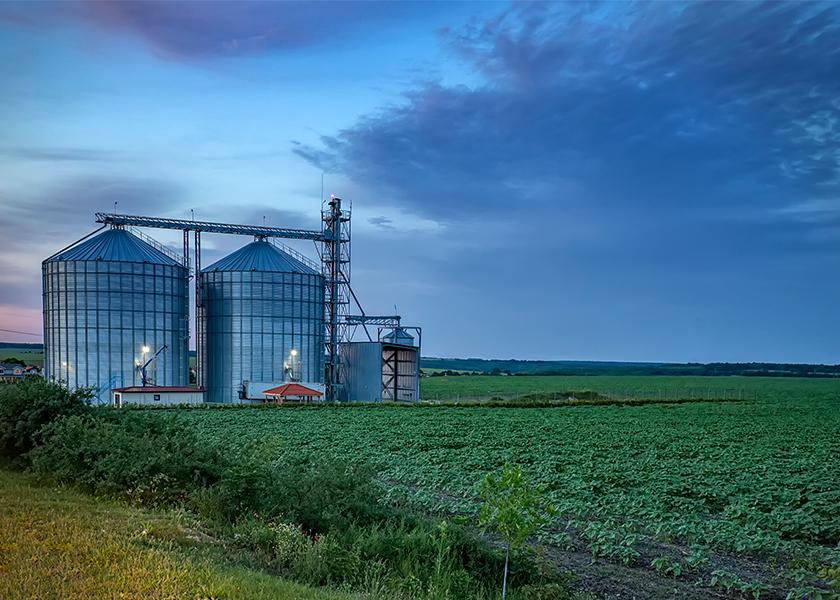Evening Report | December 20, 2022

Click here to view weekly Commitments of Traders charts.
Check our advice monitor on ProFarmer.com for updates to our marketing plan.
Carbon market add-ons to spending measure could make farm bill debate easier... Our initial analysis of language included in the $1.7 trillion omnibus spending package is that some of the provisions, and especially two carbon market-related add-ons, could make it make it easier (not easy) to get a farm bill done in 2023.
- Enacts the Growing Climate Solutions Act to facilitate ag carbon markets; would authorize USDA to oversee the registration of farm technical advisers and carbon-credit verification services. USDA would be authorized to set up and enforce a registration list for those services and would be empowered to remove entities from the registration list if they fail to meet program standards. Language modifies USDA's role in determining eligible protocols for determining eligibility for credits. USDA would still be required to maintain a list of “widely accepted” protocols.
- Enacts the SUSTAINS Act, a House bill that allows corporations and other private entities to contribute funding for conservation projects and authorizes USDA to match up to 75% in matching the donations.
Having those add-ons will limit the climate change debate as part of the new farm bill.
Omnibus spending package includes funding for specialty crops and remarks on crop insurance/A&O... Some $25 million is being made available for specialty crop equitable relief and report language directing USDA to use its legal authority to index all Administrative and Operating (A&O) payments to crop insurance companies for inflation and provide equitable relief for specialty crops going forward.
Perspective: This provides immediate and meaningful relief for specialty crops under crop insurance and is a very strong statement by Congress that USDA must correct two big A&O problems going forward. A&O has not been adjusted for inflation since 2015 and an industry insider informs that specialty crop A&O “has been decimated due to a flaw in the SRA that inflicts disproportionate cuts on specialty crop A&O when row crop prices rise.”
Additional details on rice grower aid in omnibus package... As we noted in “First Thing Today,” the Fiscal year 2023 spending legislation provides $250 million for USDA to make a one-time payment to U.S. rice producers who planted rice in 2022. A recent study conducted by Texas A&M University that looked specifically at the increase in fertilizer prices across an array of commodities, found rice farms would be hit hardest by rising costs. A second study conducted by the university focused solely on the impact of rising input costs found that two-thirds of the rice farms they monitor will fail to breakeven in 2022.
More info on pandemic assistance to cotton merchandisers... The omnibus spending package provides $100 million for USDA to make payments to merchandisers of cotton that endured significant financial losses caused by pandemic-related supply chain challenges. Cotton merchandisers serve as the link between producers and textile mills. Those that purchased cotton from U.S. producers, or marketed cotton on their behalf, and experienced economic losses during the pandemic would qualify for this relief.
Malanga sizes up U.S. economy... Long-time Pro Farmer economic consultant Dr. Vince Malanga, president of LaSalle Economics said: “The debate now is whether the economy is headed for a second dip recession, which we think is most likely if the FOMC remains strident in its quest for 2% inflation. Whether a soft landing of trend growth, low inflation, and minimal disruption to labor markets and profits is achievable may depend on the Fed becoming more flexible and quickly. Finally, there’s the stagflation scenario herein growth is weak, but inflation remains stubbornly high, forcing continued significant monetary restraint. This we think is the least likely outcome… A worst-case approach would be to continue ignoring market signals until the economy is clearly in a ditch. Then it would have to reverse course by adding liquidity and risk undoing the progress on inflation that is being made. Given the unknowns associated with balance sheet reduction and the lagged effect of actions already taken, we think it is past time for discretion to be the better part of valor.”
State Department creates new China-focused office... The State Department recently created a new Office of China Coordination, which diplomats are informally calling the “China House.” The office will lead to better coordination, which in turn will mean “nimbler and more consistent policy from the State Department,” the department said in the announcement.
Dwell time at West Coast ports lowest since July 2020... The average days’ wait for handling of containers arriving at the ports of Los Angeles and Long Beach dropped to 2.83 in November, the shortest dwell time since July 2020, according to the Pacific Merchant Shipping Association. Meanwhile, the ports of Los Angeles and Long Beach are ending the container dwell fee they announced last year but never imposed.
HPAI infections advance in commercial egg layer flocks... USDA’s Animal and Plant Health Inspection Service (APHIS) confirmed new cases of highly pathogenic avian influenza (HPAI) in three commercial table egg layer flocks since Dec. 14 totaling nearly 4 million birds. Dec. 14 confirmations included commercial egg layer flocks in Franklin County, Washington (1,015,500 birds) and Moody County, South Dakota (1,332,100 birds), Dec. 16 in Weld County, Colorado (1,400,000 birds). This brings total birds affected by HPAI this year to 57.53 million in 47 states, including 301 commercial flocks and 401 backyard flocks. The most recent confirmations in commercial operations have continued to be in turkey and commercial egg layer flocks, ones where populations of birds are older.
Supreme Court keeps Title 42 border policy in place for now... The Supreme Court on Monday put a temporary hold on a lower court order that would end the so-called Title 42 policy this week, as the justices consider a request from more than a dozen Republican-led states to preserve the pandemic-related border restrictions. In a brief order, signaling the court wants to act quickly, Justice John Roberts asked the Biden administration to respond to an emergency appeal filed by several Republican-led states seeking to keep the policy in place to slow an expected increase in migrant crossings. Roberts’ move means the policy, which allows officials to swiftly expel migrants at the U.S. border, will stay in effect at least until the justices decide the emergency application.






